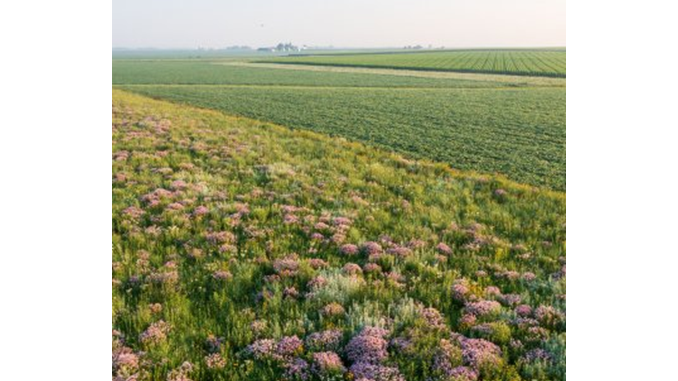Ag Informer – Money Coming for Conservation Programs

The climate, tax, and healthcare bill passed by Democratic senators on Sunday included $20 billion to ramp up USDA’s voluntary land stewardship programs, a potential windfall for climate mitigation ahead of the 2023 farm bill. “We are equipping farmers, foresters and rural communities with the necessary tools to be part of the solution,” said Senate Agriculture chairwoman Debbie Stabenow.
Vice President Kamala Harris cast the tie-breaking vote for passage, 51-50, of the climate, tax and healthcare bill in the Senate. The Democratic-controlled House was expected to vote on the bill on Friday. President Biden has proposed a 50% reduction in U.S. greenhouse gas emissions by 2030. During his campaign for the White House, he said American agriculture could be the first in the world to achieve net-zero in emissions.
The Senate bill included $8.45 for the cost-sharing Environmental Quality Incentives Program (EQIP); $3.25 billion for the Conservation Stewardship Program; $6.75 billion for the Regional Conservation Partnership Program (RCPP); $1.4 billion for the Agricultural Conservation Easement Program; and $1 billion for technical assistance. It would prioritize practices that reduce greenhouse gas emissions and increase climate resiliency. The funding would become available over a three-year period beginning Oct. 1 and be available through fiscal 2031.
By comparison, USDA land stewardship programs cost around $5 billion a year.
In addition, the bill would extend or expand tax credits for sustainable aviation fuel, carbon capture, biodiesel, and renewable diesel. Besides the $20 billion for land stewardship, there would be $14 billion for rural power and clean energy and $6 billion for wildfire protection and climate-smart forestry. Western senators also secured $5 billion to combat drought in the West.
“Dairy farmers seize environmental sustainability opportunities whenever possible,” said chief executive Jim Mulhern of the National Milk Producers Federation, pointing to additional funding for EQIP and RCPP. Both programs support practices that reduce greenhouse gas emissions, including methane.
“Farmers and ranchers support voluntary, market-driven programs that help the environment while ensuring farms remain economically sustainable,” said Zippy Duvall, president of the American Farm Bureau Federation, the largest U.S. farm group. “Farm Bureau has serious concerns about the proposed increase in taxes on American businesses at a time when the country is entering a recession. We strongly encourage lawmakers to focus on policy that directly addresses record-high input costs, spurs economic growth, and addresses inflation that is crushing the pocketbooks of America’s families.”
The National Farmers Union said it strongly supported the Senate bill with its combined $40 billion for farm and rural communities. USDA’s conservation programs perennially unable to satisfy farmer interest, said the organization. “These additional tools will allow farmers and ranchers to sequester greenhouse gases and give farmers more flexibility.”
Included in the Senate bill was more than $5 billion for debt relief to “distressed” farmers who experienced discrimination in USDA’s administration of its lending programs, reported Agri-Pulse. Farmers could receive up to $500,000 in aid based on “consequences experienced form the discrimination.”




